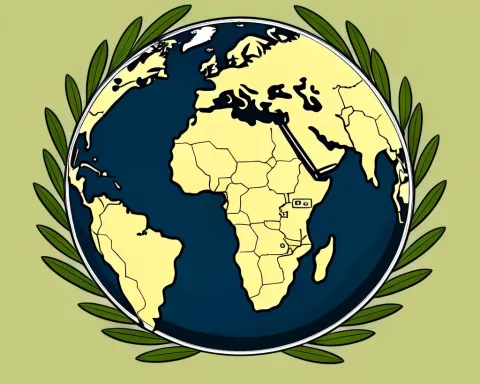AfriForum, a civil rights entity in South Africa, has expressed its opposition to the National Health Insurance (NHI) bill, citing fears over potential repercussions on the country’s healthcare. They have committed to actively contesting the legislation and mobilizing opposition factions to challenge it in a Constitutional Court lawsuit. The ongoing struggle between different visions for the future of healthcare in the country and the complex interplay between political power, civil society, and constitutional duty are highlighted.
AfriForum’s Opposition to the NHI Bill
AfriForum has expressed its opposition to the National Health Insurance (NHI) bill, citing fears over its potential repercussions on South African healthcare. The civil rights entity has committed to actively contesting the legislation and mobilizing opposition factions to challenge it in a Constitutional Court lawsuit. AfriForum’s opposition highlights the ongoing struggle between different visions for the future of healthcare in the country and underscores the complex interplay between political power, civil society, and constitutional duty.
AfriForum’s Stance on the NHI Bill
In response to a recent parliamentary progression, the civil rights entity AfriForum has expressed its opposition by authoring an open communication to South African President Cyril Ramaphosa. The age-old political tactic of open letters is utilized in this instance to address the controversial National Health Insurance (NHI) bill. AfriForum vocally opposes the bill, expressing apprehension over its potential repercussions on the health status of South Africans and affirming their resolve to confront what they interpret as a danger.
Expounding on their fears, AfriForum committed to actively contesting the legislation, outlining their determination not to back down in the face of the perceived threat. The letter serves as an explicit declaration of their stand against the bill and its potentially detrimental effects on the health sector.
The Legislative Progress of the NHI Bill
To offer some background, the NHI bill has just advanced past another legislative stage. During a meeting held on December 6, representatives from eight out of nine provinces endorsed the bill in the National Council of Provinces (NCOP). The Western Cape was the lone province to withhold its endorsement, thus being the only dissenting voice. This progression pushes the bill closer to the threshold of enactment. The ball is now in President Ramaphosa’s court to either enact the bill or, echoing AfriForum’s plea, to revert it to the legislature owing to its supposed contravention of the constitution.
The progression of the NHI bill to this stage, even without unanimous approval, underscores its potential to significantly reshape the health landscape in South Africa, further underscoring why its passage has become a matter of intense debate and scrutiny.
AfriForum’s Opposition Strategy
Louis Boshoff, AfriForum’s spokesperson on NHI, did not express surprise at the NCOP’s approval, attributing it to the African National Congress’ (ANC) dominant majority. His sharp commentary reveals AfriForum’s dual strategy in countering the bill. The first element involves exerting public pressure on the President to discourage him from enacting the bill. The second component entails mobilizing opposition factions and other advocacy groups to gear up for a Constitutional Court lawsuit against the NHI bill.
This perspective illuminates a fascinating intersection of power relations in this evolving story. Boshoff points out that the President has a constitutional obligation to review any bill that raises concerns. This highlights the constitutional checks and balances in place and underscores the President’s crucial role in determining the bill’s fate.
Power Politics and Public Welfare
AfriForum’s opposition to the bill stems from their view that the ANC is advancing their centralized plans without alteration, a charge supported by Boshoff’s assertion that the government privileges its position of power over the health of its citizens. This contention echoes the longstanding conflict between power politics and public well-being, a conflict that has been a constant in the course of political history. Boshoff’s strong language amplifies this discord, questioning the government’s level of disregard for its citizens.
The unfolding NHI bill saga is not just a significant display of the political and social consequences of health policy, but it also shines a light on the role of civil society organizations such as AfriForum in shaping and contesting policy dialogue. Their opposition, anchored in their commitment to safeguarding the health of South African citizens, stands as a testament to the strength of collective action.
Significance of the NHI Bill Saga
The unfolding narrative around the NHI bill is worth keen attention, not just for its extensive influence on South African healthcare, but also for the insights it provides on the interplay between political power, civil society, and constitutional duty. It serves as a stark illustration of the complex dance of democracy, where every move, pause, and shift carries weight.
In the grand scheme of things, the debate over the bill symbolizes the ongoing struggle between different visions for the future of health care in the country, providing a window into broader debates about the role of the state, private interests, and citizen’s rights in shaping that future.
1. What is the National Health Insurance (NHI) bill?
The National Health Insurance (NHI) bill is a proposed legislation in South Africa aimed at providing universal health coverage to all citizens of the country.
2. What is AfriForum’s stance on the NHI bill?
AfriForum is opposed to the NHI bill, citing fears over its potential repercussions on South African healthcare. They have committed to actively contesting the legislation and mobilizing opposition factions to challenge it in a Constitutional Court lawsuit.
3. What is the legislative progress of the NHI bill?
The NHI bill has recently advanced past another legislative stage, with representatives from eight out of nine provinces endorsing the bill in the National Council of Provinces (NCOP). The bill is now closer to the threshold of enactment.
4. What is AfriForum’s opposition strategy against the NHI bill?
AfriForum’s opposition strategy against the NHI bill involves exerting public pressure on the President to discourage him from enacting the bill and mobilizing opposition factions and other advocacy groups to gear up for a Constitutional Court lawsuit.
5. What is the significance of the NHI bill saga?
The NHI bill saga is significant not just for its extensive influence on South African healthcare, but also for the insights it provides on the interplay between political power, civil society, and constitutional duty. It serves as a stark illustration of the complex dance of democracy, where every move, pause, and shift carries weight.
6. What is the ongoing struggle surrounding the NHI bill?
The ongoing struggle surrounding the NHI bill symbolizes the ongoing debate between different visions for the future of health care in the country, providing a window into broader debates about the role of the state, private interests, and citizen’s rights in shaping that future.












